
ESG Reporting: Frequently Asked Questions
Reporting on financial information is nothing new for construction, civil engineering and installation engineering companies. Everyone is used to recording a company’s financial ins and outs annually in the annual report. However, this is now changing with the increasing focus on sustainability and the obligation to set up sustainability reporting for the Corporate Sustainability Reporting Directive (CSRD). Whereas the annual report used to consist only of financial data on your business operations, with the advent of the CSRD, you now have to add non-financial data to the annual report in an ESG report.
Many questions surrounding ESG reporting…
Although the obligation to report on sustainability is fast approaching, there is still a lot of uncertainty among companies in the construction industry. According to PwC, many UK companies are still not fully prepared for the extensive requirements of the CSRD. Organisations are beginning to understand the significance of these new requirements and are taking steps to align their reporting processes. However, there is still a considerable gap in readiness, particularly among smaller companies with less experience with comprehensive ESG reporting. But don’t worry; in this blog, you will read the answers to frequently asked questions!
What is an ESG report?
Such a sustainability report consists of 3 pillars: Environment, Social and Governance. With ESG reporting, a company wants to answer questions such as:
- How sustainable is a company?
- What is the impact of business operations on the world around us?
- How do you encourage diversity, and what are working conditions like in a company?
An ESG report provides insight into what sustainability strategies companies employ, what targets they set themselves, how they monitor these targets and what their policies look like. This is done based on new reporting standards: the European Sustainability Reporting Standards (ESRS). These standards give companies a foothold and describe exactly what information to report. These reporting standards are also helpful in comparing efforts and results with those of other companies in the construction industry.
Why do companies need to make an ESG report?
Creating an ESG report is crucial for companies under the CSRD because it ensures comprehensive disclosure of sustainability practices, impacts, and governance structures. This reporting is important for UK companies, especially those operating within or having ties to the EU, as it aligns them with EU regulations, enhances transparency, and builds investor and stakeholder trust. By mandating detailed ESG reporting, the CSRD aims to promote sustainable business practices, improve risk management, and facilitate the transition to a more sustainable economy, thus ensuring UK companies remain competitive and compliant in the global market.
Yet ESG reporting is so much more than an administrative obligation. Transparency about sustainability performance builds trust with clients and investors. And it forces companies to take steps towards more efficient processes. Something we, as a digitalisation partner for construction, civil engineering and installation engineering, are happy to contribute to.
Who should make an ESG report, and when should it be made?
So, making an ESG report is not a nice-to-have but a must-have. Yet the obligation to report does not yet apply to every company. This is because CSRD compliance goes into effect in phases. In the UK:
Large Companies: Starting from the financial year 2025, large UK companies operating within the EU or listed on EU-regulated markets must comply with the CSRD. These companies must prepare detailed ESG reports that include information on their environmental impact, social responsibilities, and governance structures. These reports must be audited for accuracy and reliability.
Listed Small and Medium-Sized Enterprises (SMEs): From 2026, listed SMEs will also be required to comply with the CSRD. They will need to report on their sustainability efforts, though they may have a transitional period until 2028 to fully adapt to the new requirements.
Companies will need to provide detailed disclosures on various ESG aspects, such as climate change impacts, social and employee matters, human rights, anti-corruption measures, and governance practices. These reports must adhere to the double materiality principle, meaning they must address both how sustainability issues affect the company and how its activities impact society and the environment.
Who checks the ESG reporting?
The CSRD mandates that an independent external auditor or an accredited certifier ensure companies’ sustainability information. This is to verify the accuracy, completeness, and compliance of the ESG reports with the directive’s standards.
How can 4PS help you create a sustainability report?
Let’s be clear: we are not sustainability experts. Our software solutions give companies in the construction industry more insight into their entire operations, from procurement to project management and aftercare. Our ERP 4PS Construct is the beating heart of the organisation for many companies, and it contains essential and valuable information for ESG reporting.
Not all data for your ESG reporting comes from an ERP; ESG data comes from many systems in your organisation, such as HR systems or logistics software. However, an ERP package is a data source that is needed for sustainability reporting. Therefore, engage with your ERP vendor as well. Investigate whether data from the ERP solution can be easily integrated with data from other systems.
That is also what 4PS contributes to. We build our solution 4PS Construct using the Microsoft Dynamics 365 Business Central platform. This means our solution integrates seamlessly with other Microsoft solutions, such as the Power BI reporting tool. We also ensure that data from the primary processes can be retrieved via the 4PS API to collect for ESG reports. We also work closely with our partner, 9altitudes Business Analytics. They support companies in collecting and exporting data from 4PS Construct to create CSRD reports.
Want to know more about creating ESG reports?
Are you not sure where to start when creating an ESG report? Then, read our handy step-by-step plan, which will help you on your way. Or would you like to know more about our software solution, 4PS Construct? Then get in touch with us. We will be happy to show you more.
-
Share:

Paul Broderick | Paul has developed a keen eye for seeing specific customer requirements and recommending solutions to deliver business benefits and returns-on-investment. In the last three years Paul has focused this experience and knowledge specifically on the Construction industry, where digitisation is now the hot topic in IT, which has evolved and matured to become most relevant in today’s construction industry.
